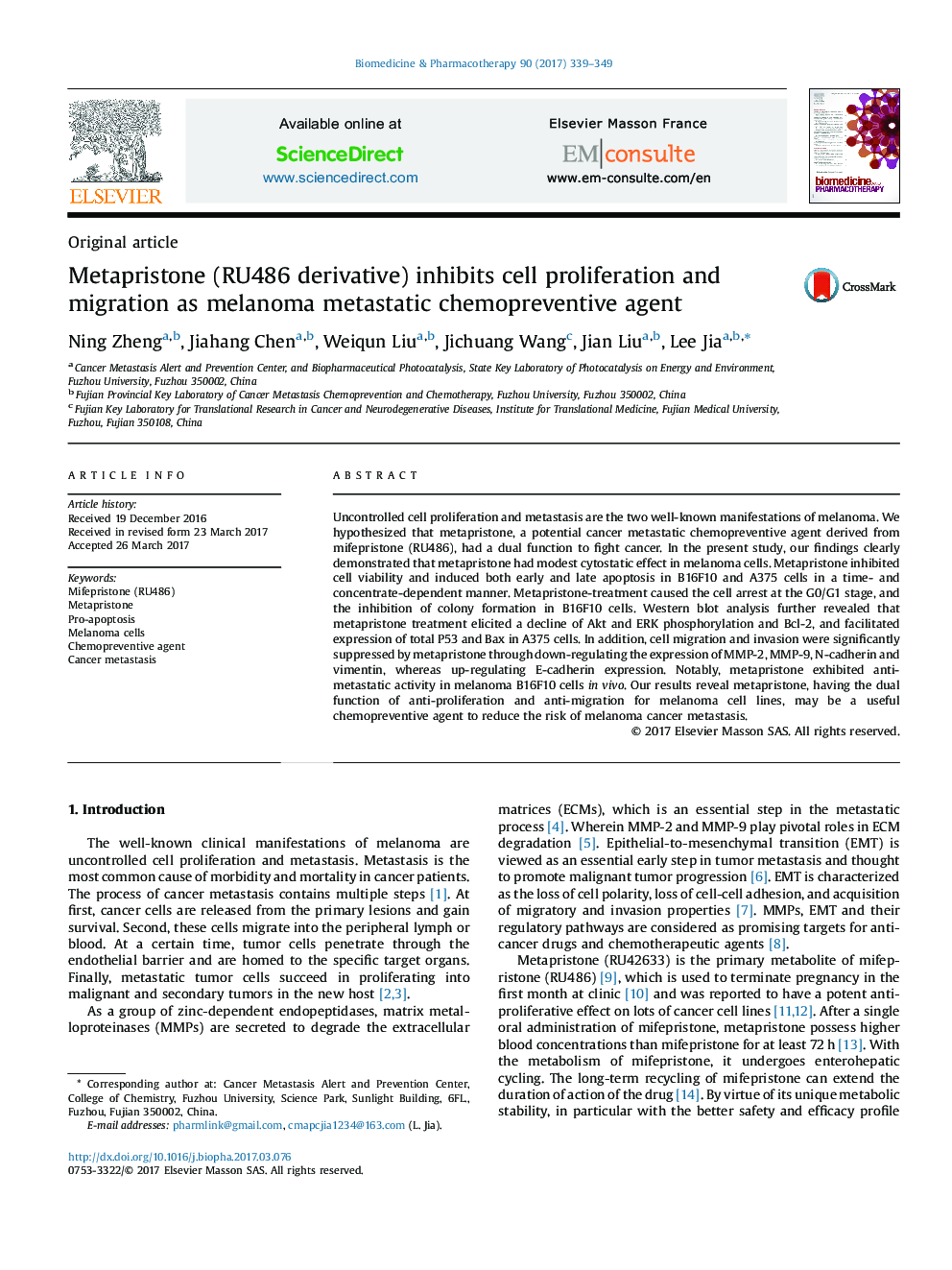| Article ID | Journal | Published Year | Pages | File Type |
|---|---|---|---|---|
| 5553050 | Biomedicine & Pharmacotherapy | 2017 | 11 Pages |
Uncontrolled cell proliferation and metastasis are the two well-known manifestations of melanoma. We hypothesized that metapristone, a potential cancer metastatic chemopreventive agent derived from mifepristone (RU486), had a dual function to fight cancer. In the present study, our findings clearly demonstrated that metapristone had modest cytostatic effect in melanoma cells. Metapristone inhibited cell viability and induced both early and late apoptosis in B16F10 and A375 cells in a time- and concentrate-dependent manner. Metapristone-treatment caused the cell arrest at the G0/G1 stage, and the inhibition of colony formation in B16F10 cells. Western blot analysis further revealed that metapristone treatment elicited a decline of Akt and ERK phosphorylation and Bcl-2, and facilitated expression of total P53 and Bax in A375 cells. In addition, cell migration and invasion were significantly suppressed by metapristone through down-regulating the expression of MMP-2, MMP-9, N-cadherin and vimentin, whereas up-regulating E-cadherin expression. Notably, metapristone exhibited anti-metastatic activity in melanoma B16F10 cells in vivo. Our results reveal metapristone, having the dual function of anti-proliferation and anti-migration for melanoma cell lines, may be a useful chemopreventive agent to reduce the risk of melanoma cancer metastasis.
